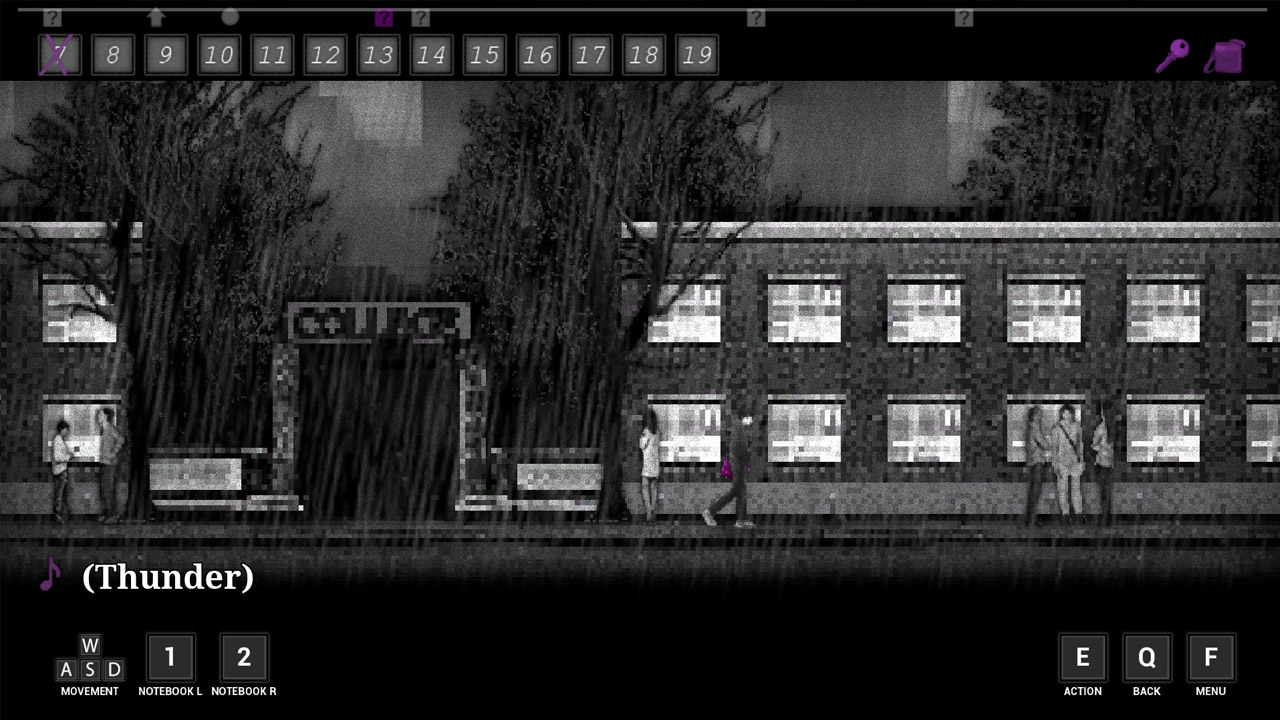College can be an exhilarating phase of life, filled with endless possibilities and new experiences. However, it can also be a time of immense pressure and stress.
As students strive to achieve academic success, they often find themselves grappling with the overwhelming weight of peer pressure and academic stress. How can one navigate this treacherous terrain without losing their sanity?
In this article, we will explore effective strategies to address and prevent issues related to peer pressure and academic stress. By learning to manage time, seek support, practice relaxation techniques, and prioritize self-care, you will unlock the key to unlocking a fulfilling and balanced college experience.
College Stressors And Academic Pressures
College life can be overwhelming and stressful for many students. The combination of academic pressures and external stressors can lead to feelings of anxiety and burnout.
It is important to recognize and address these issues to maintain good mental health and academic success.
Academic stress can arise from various sources, such as heavy workloads, challenging assignments, and high expectations. Additionally, external stressors, such as financial difficulties or relationship problems, can further contribute to the overall stress experienced by college students.
Understanding the root causes of stress is crucial in finding effective ways to address and prevent its negative effects.
Effective Time Management For Stress Reduction
One of the key strategies in managing academic stress is implementing effective time management techniques. Prioritizing tasks, setting realistic goals, and creating a well-structured schedule can help reduce stress levels.
Instead of relying solely on leisure activities to relieve stress, it is important to manage time efficiently. Allocating specific time slots for studying, reflection, and personal well-being ensures a balanced approach.
By reevaluating commitments and finding a balance, students can avoid feeling overwhelmed and exhausted.
Effective time management not only helps reduce stress but also enhances productivity. It allows individuals to make the most of their study time and complete tasks more efficiently.
By prioritizing tasks and breaking them down into manageable chunks, students can approach their workload with a clear and organized mindset.
- Create a realistic and structured schedule
- Prioritize tasks
- Break down tasks into manageable chunks
- Allocate time for studying, reflection, and personal well-being
Balancing Commitments For Well-Being
In college, it is common for students to be involved in various organizations, clubs, and extracurricular activities. While these commitments can provide valuable experiences, it is important to strike a balance between academic responsibilities and personal well-being.
Students should carefully evaluate their commitments and ensure that they align with their academic goals and personal interests. Overcommitting oneself can lead to increased stress and decreased academic performance.
It is crucial to prioritize and make conscious decisions about which commitments are truly meaningful and will contribute positively to personal growth.
In addition to academic and extracurricular commitments, it is important to allocate time for self-care and relaxation. Taking breaks, practicing relaxation techniques, and engaging in activities that reduce stress can greatly improve overall well-being.
Relaxation Techniques For Stress Management
To address and prevent issues related to peer pressure and academic stress, it is essential to have effective stress management techniques. Relaxation techniques can help individuals calm their minds and reduce stress levels.
Taking short breaks throughout the day can help alleviate tension and prevent burnout. Engaging in activities such as deep breathing exercises, progressive muscle relaxation, or mindfulness meditation can contribute to stress reduction.
These techniques can be practiced anywhere, whether in between study sessions or during a break from extracurricular activities.
Additionally, participating in activities that bring joy and relaxation can also be beneficial. Whether it is going for a walk, practicing yoga, or listening to music, finding activities that help reduce stress can greatly improve overall well-being.
Seeking Support From Campus Resources
When stress is interfering with daily functioning, it is important to seek support from campus resources. Campus Inclusion & Community and the Counseling and Psychological Services (CAPS) are valuable resources that offer professional assistance to students facing academic stress and other mental health challenges.
Building a support network is crucial in managing stress effectively. Seeking help from peers, professors, or academic advisors can provide guidance, understanding, and practical solutions to academic challenges.
Additionally, attending workshops or support groups focused on stress management and well-being can provide valuable tools and strategies.
Mindfulness And Guided Relaxation For Stress Reduction
Mindfulness has gained significant attention in recent years as an effective stress reduction technique. By staying present and focusing on the present moment, individuals can reduce stress and anxiety related to past regrets or future worries.
Practicing mindfulness involves bringing full attention to the present moment without judgment. This can be achieved through meditation, deep breathing exercises, or simply focusing on the sensations of the body or surroundings.
By incorporating mindfulness into daily routines, individuals can develop a greater sense of calm and emotional resilience.
Guided relaxation exercises can also be helpful in reducing stress. These exercises involve following an audio recording or video that provides step-by-step instructions on how to relax the body and calm the mind.
Guided relaxation can be an effective tool for managing stress and promoting overall well-being.
Academic Support Through Tutoring And Study Groups
When facing academic challenges, seeking academic support can be highly beneficial. Many colleges offer tutoring services and peer study groups to assist students in specific subjects or areas of difficulty.
Tutoring provides personalized assistance and guidance in understanding complex concepts and improving study techniques. Study groups allow students to collaborate, share resources, and learn from one another’s strengths.
These resources can help alleviate academic stress and enhance learning outcomes.
Additionally, seeking support from professors or teaching assistants is important. Office hours are often available to discuss any difficulties or concerns related to coursework.
Building a strong academic support system can contribute to increased confidence and reduced stress.
Knowing Others Share Academic Struggles
It is essential to recognize that many other undergraduates are also experiencing academic struggles. The pressure to excel academically can often create an illusion of isolation, making it harder to seek help or discuss challenges openly.
However, acknowledging that academic stress is a common experience can provide a sense of relief and perspective. Sharing experiences with peers and finding comfort in knowing that others are also facing similar challenges can alleviate feelings of inadequacy and promote a supportive community.
Utilizing Campus Resources For Stress Prevention
To effectively address and prevent issues related to peer pressure and academic stress, it is crucial to utilize the resources available on campus. Colleges often provide a wide range of resources and support systems designed to promote mental health and well-being.
Campus Inclusion & Community and CAPS are just two examples of the valuable resources available to students. These services can offer counseling, therapy, workshops, and support groups specifically tailored to address academic stress and other mental health concerns.
Taking advantage of these resources can help individuals develop coping strategies, enhance self-awareness, and build resilience. Utilizing the resources provided by the college is a proactive step in creating a healthy and supportive environment for academic success.
Focus On The Present Moment For Stress Reduction
One of the most effective ways to manage stress is by focusing on the present moment. Often, academic stress is fueled by worrying about the past or future.
By redirecting attention to the present, individuals can reduce anxiety and improve their ability to concentrate on the task at hand.
When studying or completing assignments, practice staying fully present and attentive. Avoid distractions and cultivate single-tasking rather than multitasking.
By immersing oneself in the present moment, individuals can experience a sense of calm and heightened productivity.
Learning Skills And Healthy Thinking Patterns
In addition to managing time effectively, learning new skills and adopting healthy thinking patterns can greatly improve academic performance and overall well-being.
Developing effective study strategies, such as active reading, note-taking techniques, and memory techniques, can enhance learning outcomes. Additionally, cultivating a growth mindset, practicing positive self-talk, and reframing negative thoughts can improve self-confidence and reduce stress.
By continuously honing study skills and cultivating positive thinking patterns, individuals can develop a more positive and proactive approach to academic challenges.
Positive Self-Talk And Personal Growth
Positive self-talk plays a significant role in managing academic stress and promoting personal growth. Acknowledging one’s strengths, focusing on progress rather than perfection, and forgiving oneself for mistakes are fundamental aspects of positive self-talk.
It is important to recognize that academic challenges and setbacks are a normal part of the learning process. Embracing a growth mindset allows individuals to view these challenges as opportunities for growth and development.
This perspective enables students to bounce back from setbacks, learn from mistakes, and continue progressing academically.
Taking responsibility for personal growth involves setting realistic goals, creating a supportive environment, and seeking opportunities for self-improvement.
Common Worries And Expectations In Academia
It is common for college students to experience worries, overwhelm, and high expectations in academia. Pressure to excel, fear of failure, and the desire for perfection can contribute to stress and anxiety.
Recognizing that these worries and expectations are shared by many students can help alleviate feelings of isolation. Students should remind themselves that it is natural to experience these emotions and that seeking support and utilizing resources are proactive steps towards success.
Steps To Address Issues For Success
To address issues related to peer pressure, academic stress, and mental health, it is crucial to take proactive steps towards success. By implementing the following strategies, individuals can navigate college life more effectively:
- Create a structured schedule and prioritize tasks
- Seek support from campus resources, such as Campus Inclusion & Community and CAPS
- Engage in relaxation techniques like mindfulness and guided relaxation
- Utilize academic support through tutoring and study groups
- Connect with peers and acknowledge that academic struggles are common
- Practice self-care through balanced meals, sufficient sleep, exercise, and enjoyable activities
- Cultivate self-compassion, positive self-talk, and forgiveness for mistakes
- Focus on what can be controlled and avoid taking responsibility for others’ happiness
- Address issues in academia by setting realistic goals and seeking personal growth opportunities
Forgiveness And Self-Compassion
Forgiveness and self-compassion are important components of managing academic stress and promoting personal well-being. It is crucial to forgive oneself for mistakes and avoid being too hard on oneself.
In college, students often face challenges and setbacks. Embracing these obstacles as opportunities for growth and learning allows individuals to reduce stress and enhance their ability to bounce back from setbacks.
Through self-compassion and forgiveness, individuals can foster a healthier and more positive relationship with themselves, which is essential for overall well-being.
Focusing On What Can Be Controlled
When facing peer pressure and academic stress, it is important to focus on what can be controlled and let go of what cannot be controlled. Taking responsibility for personal actions and making proactive choices is empowering.
Students should avoid taking on the responsibility for others’ happiness or achievements. Prioritizing personal growth and well-being over external expectations alleviates unnecessary stress and allows individuals to focus on what truly matters.
Self-Care For Stress Management
To effectively address and prevent issues related to peer pressure and academic stress, practicing self-care is essential. Taking care of oneself physically, mentally, and emotionally contributes to overall well-being and stress reduction.
Balanced meals, sufficient sleep, regular exercise, and engaging in enjoyable activities are all crucial aspects of self-care. These actions provide the body and mind with the necessary resources to handle stress effectively.
Additionally, practicing stress-reducing techniques, such as mindfulness, relaxation exercises, and engaging in hobbies or interests, can greatly improve well-being.
Practicing Daily Positive Self-Care Actions
When facing high levels of academic stress, it is important to incorporate daily positive self-care actions into one’s routine. These actions can help individuals recharge, reduce stress, and promote overall well-being.
Identify three positive things to do for oneself each day when facing academic stress. These can include engaging in activities that bring joy, connecting with loved ones, practicing self-reflection, or engaging in hobbies.
By prioritizing self-care and making it a non-negotiable aspect of daily life, individuals can better manage stress and maintain good mental health.


